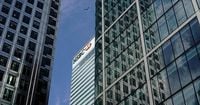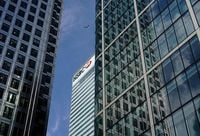HSBC Holdings plc, one of the world's largest banking and financial services organizations, announced a $3 billion share buyback on April 29, 2025, following a significant 25% decline in its first-quarter profit. The London-based bank reported a profit before tax of $9.5 billion, down from $12.7 billion a year earlier, which was primarily impacted by one-time charges related to business disposals in Canada and Argentina. This disappointing performance was notably below analyst expectations, which had estimated a pre-tax profit of $7.8 billion.
The earnings report highlights the challenges HSBC is currently facing amid a turbulent global economic landscape exacerbated by U.S. President Donald Trump's sweeping tariffs. The bank warned of potential impacts on loan demand and credit quality as economic uncertainty grows. In its earnings release, HSBC stated, "The macroeconomic environment is facing heightened uncertainty, in particular from protectionist trade policies, creating volatility in both economic forecasts and financial markets and adversely impacting consumer and business sentiment."
In addition to the profit drop, HSBC reported $900 million in expected credit losses for the quarter, which includes $150 million reflecting the heightened economic uncertainty. The bank indicated that it could face an additional $500 million in losses if the global economy slows further due to the ongoing trade tensions. Executives from major U.S. banks have also expressed concerns about economic turbulence following the tariffs implemented on April 2, 2025, which have led consumers and businesses to adopt a more cautious approach.
Despite the profit decline, HSBC's share buyback initiative has been viewed as a "positive surprise" by analysts. Michael Makdad, an analyst at Morningstar, noted the buyback as a sign of confidence in the bank's long-term prospects. Additionally, analysts at Jefferies characterized the earnings as strong, particularly highlighting increased activity in Asia, especially in Hong Kong, where the wealth management sector saw a remarkable 29% growth in new customers quarter-on-quarter. Following the earnings announcement, shares of HSBC rose more than 2% in Hong Kong trading, while the benchmark Hang Seng Index increased by 0.3%.
As part of its ongoing strategy to streamline operations, HSBC has initiated a strategic review of its Malta operations, which is still at an early stage. The bank aims to trim its smaller businesses globally and focus on more profitable areas. Corporate and institutional banking, which remains its largest revenue generator, reported $7.2 billion in revenue for 2024, reflecting an 11% increase from the previous year. Additionally, the bank's international wealth and premier banking operations posted a 12% revenue increase during the same period, buoyed by strong performances in wealth management.
HSBC has maintained its performance target of achieving a mid-teens return on average tangible equity for the three years from 2025 to 2027, after achieving 14.6% in 2024. The bank is also committed to controlling its expenses, planning to limit growth to 3% in 2025 compared to 2024 costs. Furthermore, HSBC is targeting a reduction in annual costs by $1.5 billion by the end of 2026.
In another significant move, HSBC revealed it would be reducing its stake in Bank of Communications (BOCOM) from 19.03% to approximately 16%, which will result in a loss of up to $1.6 billion due to the Chinese bank's fundraising activities through a private placement of shares. CEO Georges Elhedery, who was promoted from CFO, has been leading a comprehensive overhaul of the bank since taking the helm. This restructuring includes cutting senior management positions and reorganizing operational divisions along East-West lines, which is expected to incur severance and other upfront costs of $1.8 billion over 2025 and 2026.
As part of its commitment to shareholders, HSBC announced it will pay its first interim dividend of $0.10 per share, following a more substantial dividend payout of $0.87 the previous year. This decision underscores the bank's ongoing dedication to returning value to its investors despite the current economic uncertainties.
In summary, while HSBC's first-quarter results reflect significant challenges posed by global economic conditions and trade tensions, the bank's proactive measures, including a substantial share buyback and strategic reviews, indicate a commitment to navigating these turbulent waters and positioning itself for future growth.





